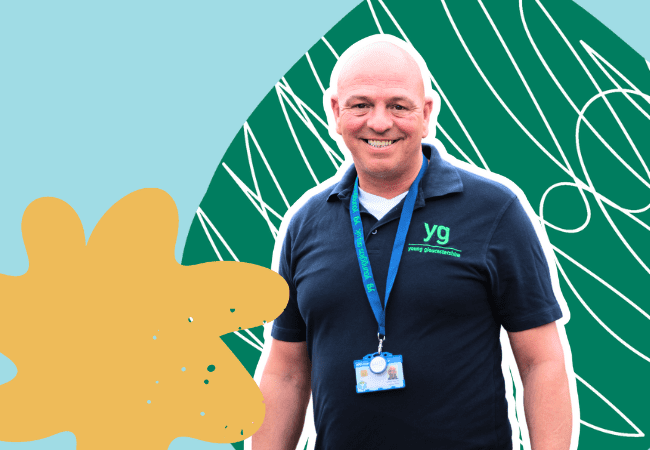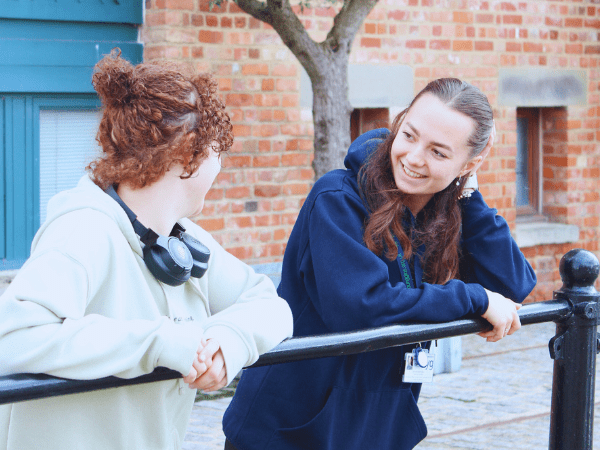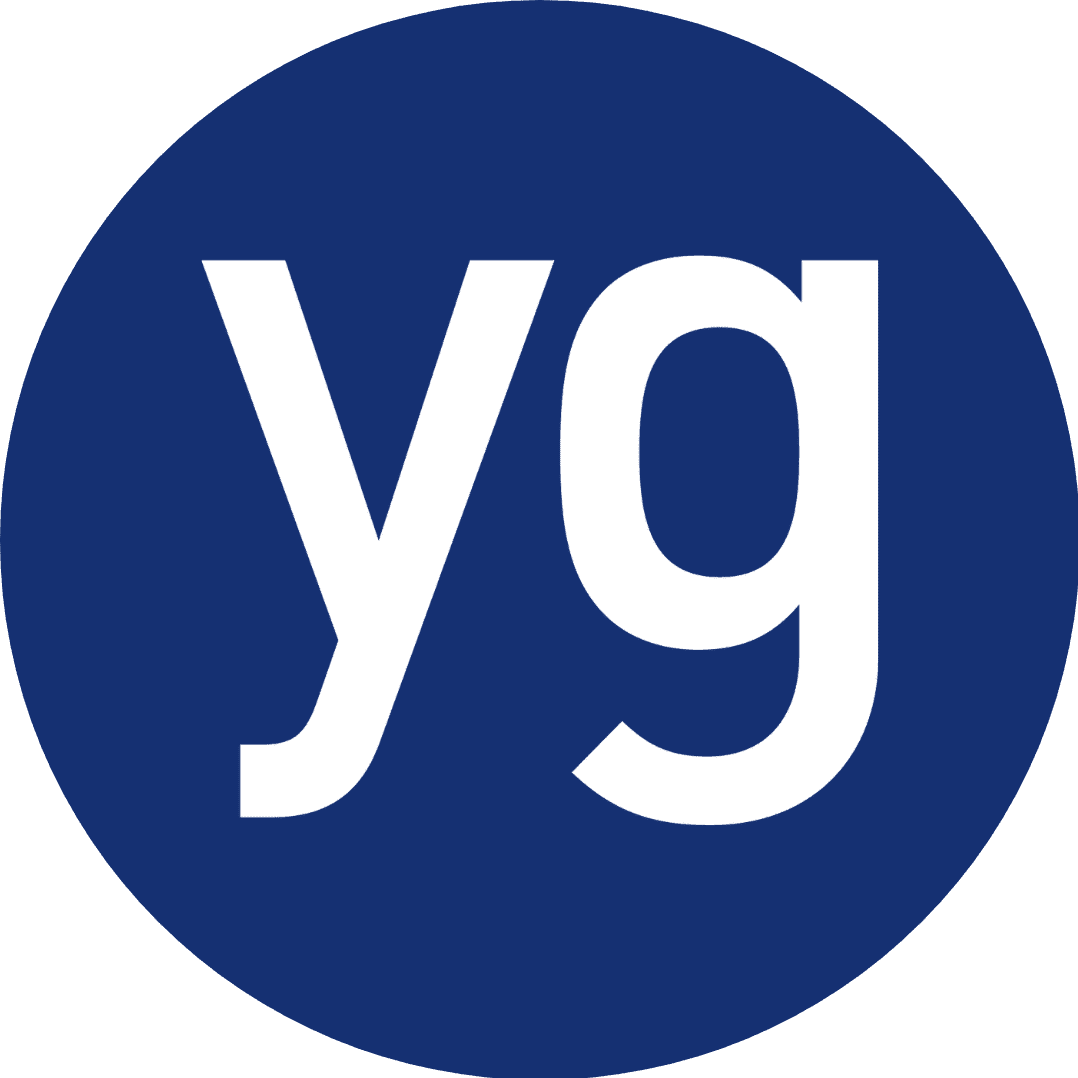
From Struggle to Strength: Supporting Young People Through Substance Misuse
By Julian Kite, Young Person’s Substance Misuse Worker
“My name is Julian, and I am a Young Person’s Substance Misuse Worker for Young Gloucestershire. I relocated to Gloucestershire from South Derbyshire in 2018, after undergoing a medically induced detox and spending six months in rehabilitation for drugs and alcohol. My personal drug of choice was alcohol, which I abused for over 25 years to cope with childhood traumas. It started with my first taste of rum and quickly escalated to using spirits as a coping mechanism.
“For many years, I managed to hold down full-time employment as a Project Manager for National Housebuilders. I had no idea that my drinking was detrimental to my health and well-being; it felt normal to me. It was only through comments from others that I began to realise I had a problem. In 2015, a good friend encouraged me to seek help as my daily alcohol consumption had spiraled out of control. I reached out to a drug and alcohol service in Derbyshire and agreed to undertake a home detox, as the amount I was drinking had become dangerous.
“The home detox lasted about four months, but without alcohol, I turned to cocaine, MDMA, and prescription medication. My mental health deteriorated dramatically. By 2016, I was back to consuming alcohol at previous levels, supplemented by drugs. This led to numerous overdoses and hospitalisations. I was drinking two bottles of Southern Comfort daily, yet somehow still holding down employment. My employer eventually requested a fit note from my GP, who, knowing my history and recent hospitalisations, refused to issue it.
“With my employer’s support, I took time off on full pay, but without the structure of work, my alcohol and drug intake increased, leading to constant overdosing. My health and financial decisions were taken over by my brothers, who got me on a pathway to rehabilitation. In January 2018, I entered detox and rehab. After completing the first three months, I was allowed a home visit. Unfortunately, I relapsed, buying vodka and overdosing on the way. I was fortunate to be allowed back into rehab, where I completed the final three months, receiving counselling and trauma-informed EMDR therapy. During this time, I completed courses in Drugs and Alcohol in Society and peer mentoring.
“I left rehab in July 2018 and relocated to Gloucester, as it was recommended to avoid returning to my previous environment. I moved into a dry house with supported accommodation and started volunteering at NHS Homeless Healthcare. Volunteering three times a week helped me stay sober and gave me a sense of purpose. I was eventually offered full-time employment with the NHS Foundation Trust at Gloucester Royal Hospital in Trauma Orthopaedics. Although this role wasn’t directly related to substance misuse, it allowed me to give back to society. I also completed accreditation in Substance Misuse, adding formal qualifications to my 25+ years of lived experience.
“In 2023, I saw Young Gloucestershire advertising for a Young Person’s Substance Misuse Worker. I gave this opportunity serious thought, wondering if such a role had existed when I was younger, could my outcome have been different? This position felt almost tailor-made for me, allowing me to give back from a substance misuse perspective and support the community in Gloucestershire that had been so good to me during my recovery journey.
Understanding the Challenges
My journey has given me deep insights into the challenges young people face today regarding substance misuse. The pressures of modern life—academic stress, social media, family issues, and peer pressure—can all contribute to the likelihood of young people turning to substances as a coping mechanism.
Spotting the Signs
Recognising the signs of substance misuse early can make a significant difference. Here are some indicators that a young person might be struggling with alcohol misuse:
You might be misusing alcohol if:
- You feel you should cut down on your drinking.
- Other people have been criticising your drinking.
- You feel guilty or bad about your drinking.
- You need a drink first thing in the morning to steady your nerves or get rid of a hangover.
Someone you know may be misusing alcohol if:
- They regularly drink more than 14 units of alcohol a week.
- They sometimes cannot remember what happened the night before because of their drinking.
- They fail to do what was expected of them as a result of their drinking (e.g., missing an appointment or work because they’re drunk or hungover).
Getting Help
If you’re concerned about your drinking or someone else’s, a good first step is to see a GP. They can discuss the services and treatments available. Your alcohol intake may be assessed using tests. As well as the NHS, there are numerous charities and support groups across the UK that provide support and advice for people with an alcohol misuse problem, such as:
- Drinkline national alcohol helpline: 0300 123 1110
- Alcoholics Anonymous helpline: 0800 9177 650
- Al-Anon Family Groups helpline: 0800 0086 811
Treating Alcohol Misuse
Treatment options include:
- Counselling: Self-help groups and talking therapies, such as cognitive behavioural therapy (CBT).
- Medicines: To help stop withdrawal symptoms and to reduce the urge to drink.
- Detoxification: Supported by a nurse or doctor to safely stop drinking, either by gradually reducing intake or using medication to prevent withdrawal symptoms.
Statistics show the importance of addressing these issues early. According to the UK government’s report for 2022-2023, there were 12,418 young people in treatment for substance misuse, highlighting the critical need for these services.
My Message to Young People
“To any young person reading this: you are not alone. The journey to recovery is challenging, but with the right support, it is entirely possible. Don’t be afraid to reach out, ask for help, and take the first step towards a healthier, brighter future. Remember, it’s never too late to change your path and seek the support you need.
“In my role at Young Gloucestershire, I am committed to helping young people navigate these challenges and find the support they need. My experience has shown me that recovery is possible, and I am here to guide you every step of the way.”
Young Gloucestershire’s Substance Misuse Programme
At Young Gloucestershire, we deliver a Young Person’s Substance Misuse Programme on behalf of the Drug and Alcohol Provider for Gloucestershire, V-I-A. The programme supports young people aged 16-25 through one-to-one weekly sessions, either face-to-face, on zoom call or with phone calls, and text messages. Support lasts for up to six months and is aimed at providing early intervention through education and mentoring. Our outreach programme operates in community spaces like coffee shops and across YG Hubs and Via Hubs across the county, providing a friendly and relaxed approach as we look at young people’s habits, behaviours and choices.
Get Support
If you know someone who might benefit from this service, or you are a young person who would like some help then complete our online referral form.You may also like...
The Story of an Arcus Family

Supporting Ukrainian Refugees

Understanding the ‘Hidden Victims of Crime’ Project

World Suicide Prevention Day 2024

